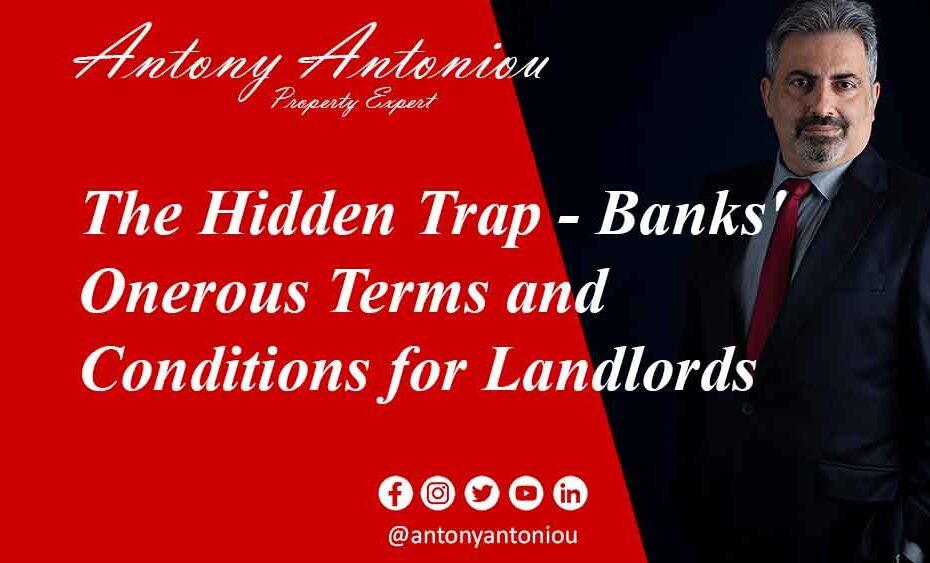The Hidden Trap – Banks’ Onerous Terms and Conditions for Landlords
*Introduction*
Being a landlord in today’s market is no easy task, and it’s not just about managing properties and tenants anymore. The financial landscape has become increasingly challenging for landlords, thanks to the stringent terms and conditions imposed by banks. The rising interest rates, combined with the banks’ hidden clauses, are creating a perfect storm that is pushing landlords to the brink.
**Interest Rates Soar: Landlords Trapped on Standard Variable Rates**
In recent years, interest rates have soared to the highest level in 15 years, leaving landlords trapped on their lender’s standard variable rate, often costing as much as a staggering 9.5 percent. But it’s not just the rates themselves that are the issue; it’s the small print behind them that’s causing even more trouble. Many lenders have introduced the “interest coverage ratio” (ICR) to assess how easily a mortgage debt can be repaid.
**ICR Nightmare: Landlords Struggle to Secure New Lending or Refinance**
In the past, the ICR was set at 125 percent for lower-rate taxpayers and 145 percent for higher-rate taxpayers. Unfortunately, these figures have now risen to 130 percent and 165 percent, respectively. This means that landlords seeking to remortgage their properties are now forced to raise rents on their tenants to meet the bank’s criteria. If they fail to do so, they may be left with no choice but to sell the property altogether.
**Taxation Woes: Section 24 and Increased Mortgage Rates**
Adding to this burden is the full introduction of Section 24 and increased mortgage rates, which prevent landlords who own properties in their personal names from deducting the full expense of mortgage interest from their tax bills. This has resulted in many basic-rate taxpayers being pulled into higher tax bands, a phenomenon known as “fiscal drag,” further squeezing landlords’ finances.
**A Crisis of Costs: Struggling to Keep Up with Rising Expenses**
The situation has reached a tipping point, and landlords are now grappling not just with the cost of living crisis but also a “cost-of-doing-business” crisis. With a shortage of rental properties available and a flood of prospective tenants, the rental market is teetering on the edge of a cliff. Even landlords who wish to continue in the market and have borrowed money are struggling to keep up with the rising costs.
**EPC Grade Impact: Banks Penalize Lower-Rated Properties**
The problems don’t end there. The banks are also scrutinizing the energy performance of rental properties, using the energy performance certificate (EPC) grade as a criterion for their loans. Despite the acknowledgment that EPCs are flawed and the proposed overhaul of the system by the government, banks continue to penalize landlords with lower-rated properties by charging higher mortgage rates, further exacerbating the situation.
**Lack of Coherence: The Banks’ Stringent Criteria and Looming Energy Regulations**
It’s evident that there is a lack of coherence and forward-thinking among various stakeholders in the rental market. The banks’ strict criteria for buy-to-let properties, coupled with looming energy regulations that haven’t even been officially enacted, create an untenable situation for landlords. This, in turn, has a direct impact on the housing crisis and surging rents we witness today.
**Conclusion: Urgent Reforms Needed to Address the Crisis**
If there is a cause to be identified for the rental market’s turmoil, it undoubtedly lies within the banks’ fine print. Landlords are caught in a web of rules and regulations, struggling to make ends meet while trying to provide homes for their tenants. Urgent reforms and a more holistic approach are needed to address these issues and ensure a sustainable and fair rental market for all stakeholders involved. Only then can we hope to find a way out of this crisis.

